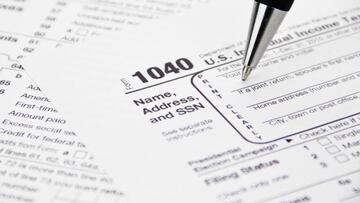Tax Return: can I get interest if my refund comes late?
The IRS is given time to process your tax return and send you a refund from the 15 April due date, if they are late, they will pay you interest.

The Internal Revenue Service (IRS) was criticized by the Government Accountability Office (GAO) in a report this month for having to pay a whopping $3 billion in interest payments for sending refund checks on 2019 filings late. The covid-19 pandemic was partially to blame but the report indicated that the amount the IRS is paying in interest for late returns has been increasing year on year.
The IRS has a 45-day interest-free processing window to get you your return without paying interest on your refund. At the same time, if you file your return late, you will be stuck with the interest bill, that is unless the IRS is slow in processing your return, they have 45 days to issue a refund from the date they receive your return after the 15 April due date for income-tax returns.
How much interest is due on late refunds and returns?
The clock starts ticking 15 April on the interest you will pay the IRS or the IRS will pay to you. Whereas the IRS gets some leeway in order to process your return, if you owe money to Uncle Sam your payment needs to be made by 15 April.
Even if you file for an extension, the interest will accrue on a daily basis from the 15 April deadline. Likewise, the IRS will be on the hook to pay you interest for a late refund starting 15 April, or from the date they receive your late return, which will also be compounded daily, which means it is assessed on the previous day's balance plus the interest.
The IRS calculates interest on underpayments and late refunds by adding 3 percentage points to the current federal short-term rate, which changes quarterly. In the case of 2020 the interest rate in the second quarter, which ended June 30, was 5%, and then 3% in the third and fourth quarters.
-
What are the differences between the child tax credit and the child care tax credit?
-
Is it mandatory to file tax return?
-
How much is the tax credit for child and dependent care?
-
Is the child tax credit refundable?
-
How to calculate what you pay with income brackets and rates
-
Tax Return 2021: how long does it take to get refund?
How much interest did the IRS pay taxpayers in 2020?
Although the IRS paid out a total of $3.03 billion in interest on late refunds for tax returns filed “on time” it didn’t work out to very much for the average taxpayer. For the approximately 13.9 million taxpayers who filed their 2019 federal income tax returns on time, the interest payments averaged about $18 per individual taxpayer. Those interest payments are taxable and will have to be reported on your 2020 income-tax filing.
In the GOA report, they found that the IRS has been paying more and more interest each year rising around half a million each year in the three previous fiscal years. The IRS paid just over $1.1 billion in refund interest in 2017. The following year, the amount was nearly $1.6 billion, and last year it rose to just over $2 billion.
The IRS had a little handicap last year, as the filing deadline was extended to 15 July. But the tax collector wasn’t given an extension on its administrative duties and still had to pay interest starting from 15 April. On top of that the agency’s processing and service facilities were temporarily closed due to the covid-19 pandemic. With its reduced capacity the IRS amassed a backlog of 23 million pieces of unopened mail which included returns. At the end of January there were still 6.7 million individual tax returns in the processing pipeline.






